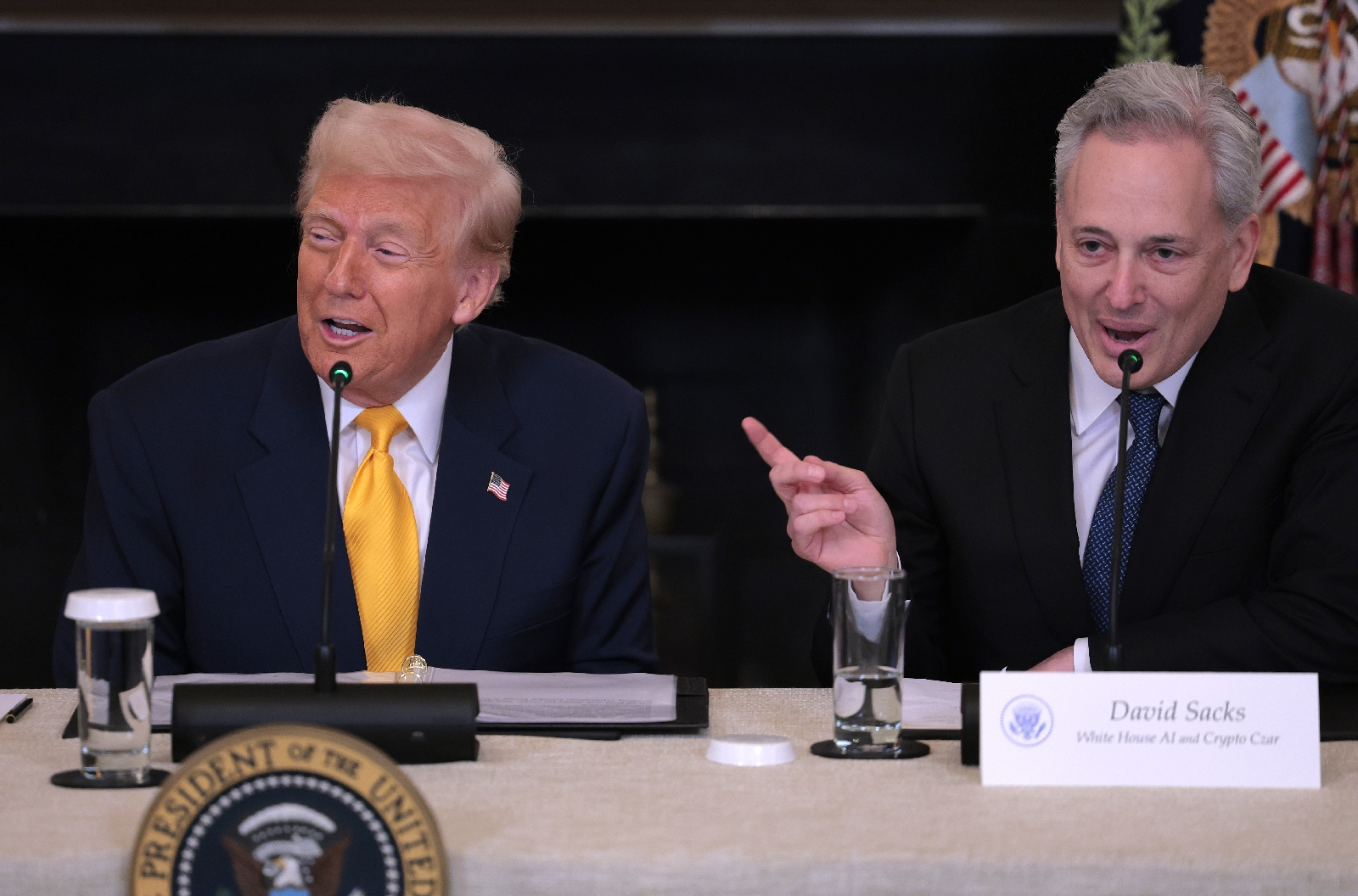Trump's 'AI Action Plan' favors deregulation, competition, and tech industry freedom
President Donald Trump has officially unveiled his administration’s long-promised AI Action Plan, fulfilling a commitment to replace the Biden-era executive order on artificial intelligence regulation. Issued just days into his term, Trump’s repeal of the previous administration’s 100-plus page AI directive signaled a sweeping policy reversal. The newly released 23-page plan marks a stark pivot—emphasizing deregulation, industry competition, and rapid infrastructure development rather than government oversight or risk mitigation.
Trump’s AI Action Plan emphasizes deregulation, industry competition, and minimal oversight, signaling a major shift from Biden-era AI governance.
Getty Images
Public feedback was accepted leading up to the plan’s release, a process led by AI advisor David Sacks, a figure with deep roots in Silicon Valley. The final version of the document reflects the tech industry’s longstanding resistance to regulation, with little emphasis on accountability and a clear preference for innovation over restriction.
Unlike the European Union’s comprehensive AI Act, which places strict controls on high-risk AI systems and mandates transparency, Biden’s executive order was inherently limited by U.S. legal constraints. That directive encouraged cooperation from AI developers, asking them to voluntarily disclose model risks to federal agencies prior to public release. While weak in enforcement, it nonetheless set a tone for precaution and government involvement in shaping AI’s future.
Trump’s plan effectively nullifies that approach. The new framework largely omits enforcement mechanisms and barely mentions regulation except in a critical context—labeling it as “onerous,” “unnecessary,” and “burdensome.” In contrast, language around “competition” and “economic freedom” is repeated frequently, signaling a hands-off approach aligned with the current administration’s broader deregulatory agenda.
The shift has been welcomed by powerful figures in the tech sector. Entrepreneurs such as Elon Musk, Sam Altman, and Marc Andreessen—many of whom shifted political allegiance in recent years—now appear to have secured the deregulated environment they sought. The AI Action Plan notably includes provisions to expedite permitting for data centers, semiconductor facilities, and energy infrastructure under the “Build American AI Infrastructure” initiative. Environmental regulations are described as impediments to growth, with the plan suggesting that existing systems slow progress.
For the entertainment industry, this policy offers new freedoms for studios and producers to deploy AI tools without constraint. However, it also opens the door for AI-driven firms to disrupt traditional media models unchecked.
A key feature of the plan is its contradictory stance on China. The document frames China as both a strategic threat and a critical market. It advocates for unregulated development to counter perceived technological competition from Beijing, arguing that U.S. dominance is essential for national security. Yet it simultaneously promotes lifting trade restrictions, such as the recent approval for Nvidia to resume chip sales to China—moves expected to yield billions in profits.
The plan promotes exporting American AI “hardware, models, software, and standards” to allied nations, though it offers no clear definitions for alliance criteria or regulatory benchmarks. Meanwhile, the administration aims to prevent China from influencing global AI governance frameworks, emphasizing geopolitical rivalry while facilitating commercial exchange.
Among the plan’s most unexpected focal points is the emphasis on ideological neutrality. It suggests the federal government should only work with AI developers who ensure that their systems are “free from top-down ideological bias.” In practical terms, this appears to target content moderation and perceived political censorship more than actual safety risks like misinformation, bias, or intellectual property theft. This rhetorical positioning appeals to concerns over “wokeness,” despite limited evidence that current AI tools are heavily restricted in that regard.
Resistance to this deregulation-focused agenda remains uncertain. Tech-skeptic figures such as Missouri Senator Josh Hawley have previously voiced concern over AI’s encroachment on personal rights and intellectual property. Though quiet on this latest development, Hawley has previously proposed legislative frameworks aimed at restoring individual control over personal data. However, meaningful federal pushback appears unlikely for now.
Regulatory momentum may shift to the state level, where local governments retain authority to impose AI-specific legislation. Still, major states like California have yet to take decisive action. Legal battles may offer the most immediate checks on AI’s expansion, as seen in high-profile lawsuits like Disney’s case against Midjourney over creative content use.










